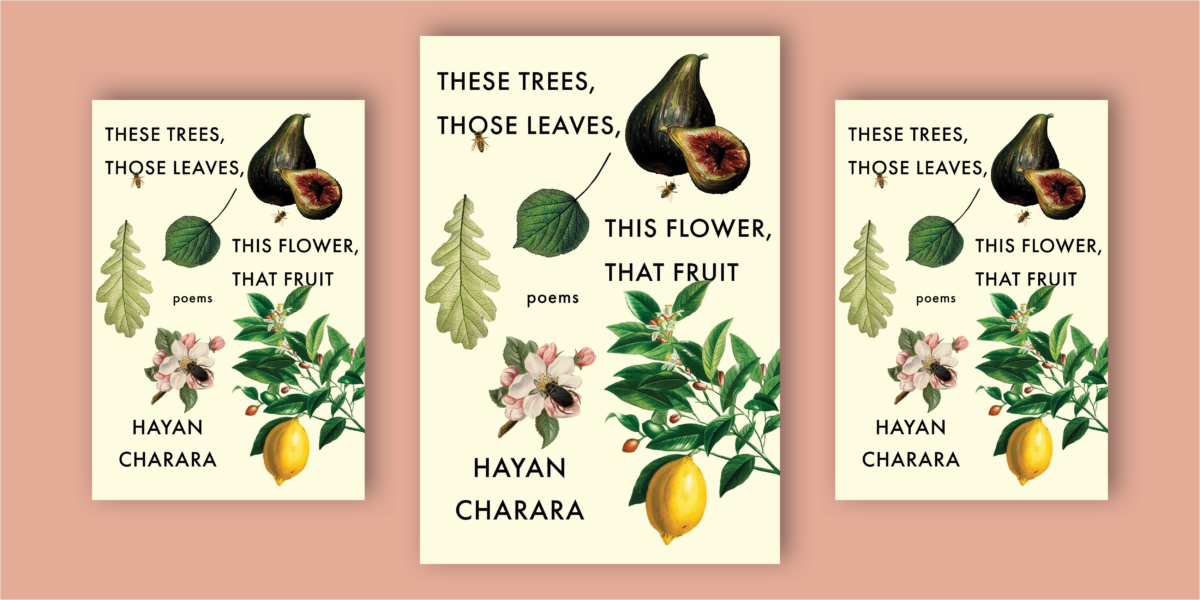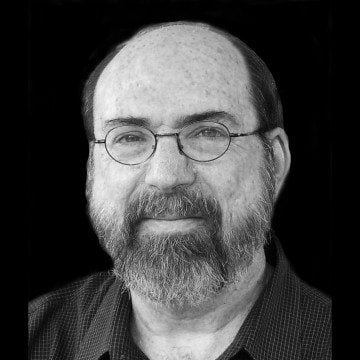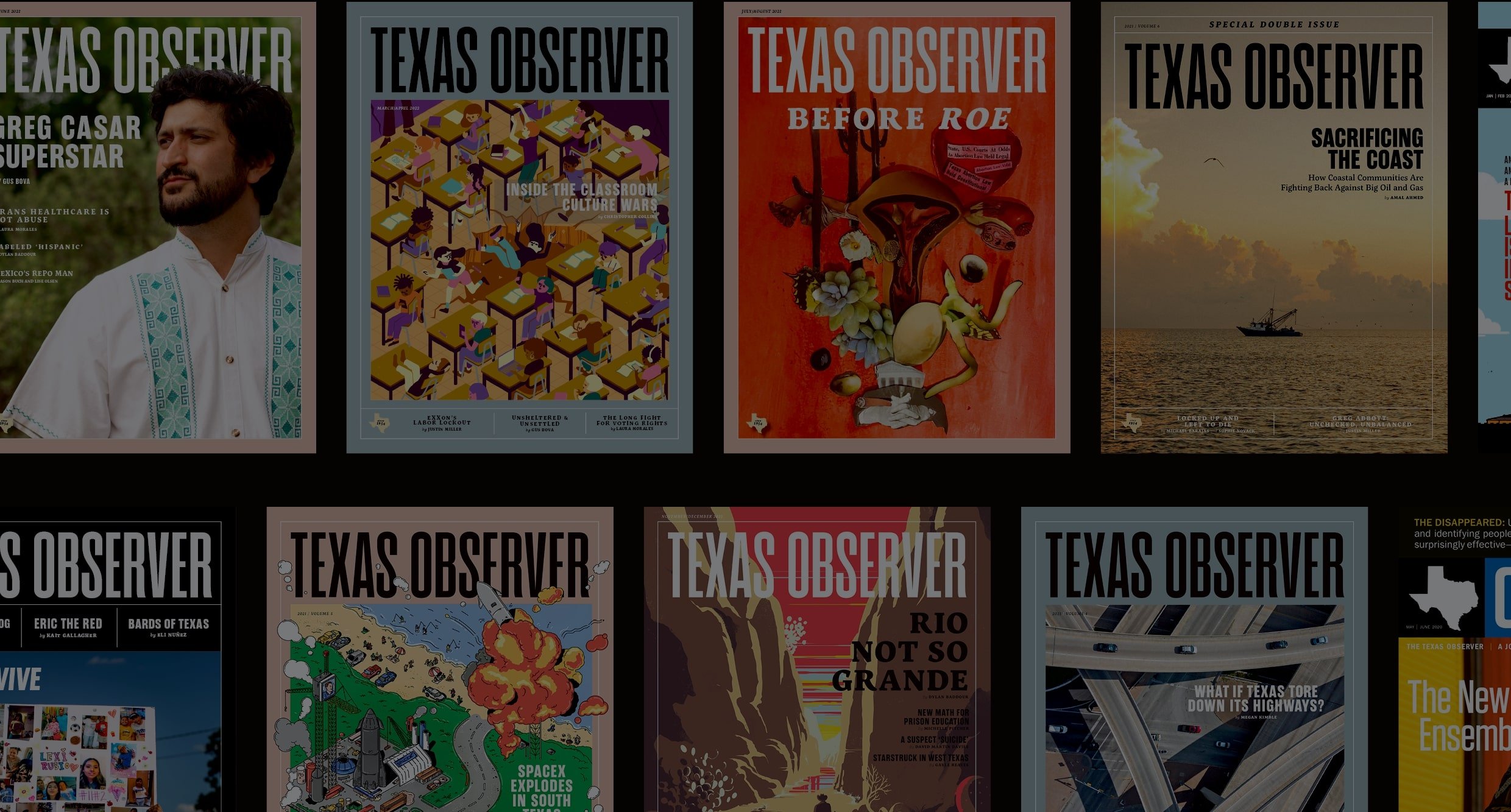
Houston’s Hayan Charara Plumbs the Politics of the Personal
A new collection of poems by the author is plainspoken, yet profound.

A version of this story ran in the March / April 2022 issue.
When I first glanced at the title and the winsome botanical illustrations on the cover of a new book by Houston-based poet Hayan Charara, I expected a collection of nature poems. Charara does write lyrically and compellingly about the natural world. But that isn’t the focus of These Trees, Those Leaves, This Flower, That Fruit. Rather, this is poetry of the human condition, which Charara describes as “a composite / of violence, vengeance, and theft, / ingenuity, too, and forms of love unique / to men and women.” These Trees is also a potently political work.
This is Charara’s fourth book of poems; his third, Something Sinister, was a 2017 Arab American Book Award winner. Born in Detroit, the son of Arab immigrants, Charara earned a Ph.D. in literature and creative writing from the University of Houston, where he now serves as professor in the Honors College. Charara is also an award-winning author of children’s books and the editor of an anthology of contemporary Arab American poetry.
Unlike some poets of recent decades—say, John Ashbery or the Language poets—Charara spurns T.S. Eliot’s dictum that poetry in our time must be difficult. His poetry is plainspoken and accessible, yet as deep and evocative as any of the best contemporary poetry, rewarding repeated readings with new and deeper insights. In this respect, his work resembles that of another Arab American poet, Texas Observer poetry editor Naomi Shihab Nye, as well as his fellow Detroit native, former U.S. Poet Laureate Philip Levine, whom Charara cites as a major influence. In “The Day Phil Levine Died,” Charara credits Levine’s poem “Belle Isle, 1949” for his decision to give up a medical career and become a poet. These Trees teems with scenes from daily life: sitting on the porch, listening to cicadas; buying groceries and washing dishes; watching a dog cross a freeway.
Yet Charara’s poetry is anything but mundane. He makes plain language sing—as in the poem “Older”: “The dirt, damp with rain, is older than the sprouting grass. / And shadowing the grassy spikes, the oak trees / with brittle limbs that never fall.” Sometimes Charara’s music works through the skillful use of repetition, taking on an incantatory character reminiscent of Walt Whitman’s “Song of Myself” or Allen Ginsberg’s “Howl.” “Bees, Honeycombs, Honey,” builds in intensity through chant-like repetition of keywords, foretelling the global collapse of bee populations and the cascading effect on all life, including homo sapiens:
one day all the bees
will be gone; gone, and gone;
honeycombs, and houses,
gone; … all trees, flowers,
gone
.…
the bees will be gone, and
only their honey will
survive, and we will not
be around to taste it.
These Trees is a political work in the sense that insisting on truth, “on an accurate depiction of people’s lives as they actually live them,” is a “political act,” as Philip Levine once said. Charara’s poetry insists on unwavering attention to truth, especially about human feelings. Charara is not afraid to bring to light thoughts and feelings we are loath to admit, even to ourselves. One poem speaks for sleep-starved new parents: “Sometimes love means not / throwing a wailing infant / through a windowpane.” In another poem the speaker expresses condolence to the parent of a stillborn child, then apologizes “for feeling glad that you, / not me, suffered this.” In “Self-Portrait with Woman on the Subway,” Charara recalls a woman sitting across from him “crying badly,” while those around her look down and pretend not to notice. Time seems to stand still. Twenty years later, his own silence still haunts him: “I could’ve said something, / anything— / ‘The red of your scarf / is beautiful.’”
The poems in These Trees are political in yet another sense: They are haunted by awareness of white Americans’ fraught and often phobic relationship with the Muslim world and with their Muslim American and Arab American neighbors. In “Terrorism,” a long poem about truth, language, and discretion, Charara writes about giving a reading in Dearborn, Michigan. He notes that some people label Dearborn “a hub of ‘terrorist’ activity”; what they mean by “terrorist,” he explains, is “‘Arab’ or ‘Muslim’ / or ‘people who look like / the terrorists we fear.’” People, that is, like Charara himself.
In another poem, Charara hears a dog barking outside his quiet room here in the States, while he looks at photos of other dogs “snarling and lunging at / men naked and hooded,” a likely reference to the photos of torture at Abu Ghraib. Later, while traveling, the speaker notes that it is fall and “There will be leaves / to bag when I return home”; he then thinks of “men in foreign lands” who will return home in body bags.
The final poem in this collection knits together the themes of Arab American experience, looming ecological catastrophe, and the human condition. Entitled “Apokaluptein”—an ancient Greek word meaning to disclose or reveal, and the root of our word apocalypse, denoting final catastrophic destruction—this poem connects the ongoing “Arab apocalypse” with the longer-term “human apocalypse,” which Charara says began with the explosion of the first atomic bomb but also “50,000 years ago,” when human hunters wiped out the megafauna. We should have learned our lesson by now: Alone among other species, Charara notes, humanity “knows, consciously, what others of its kind / thought and did thousands of years before”; our “stories, myths, histories, philosophies” are mirrors that show us ourselves. Yet, he writes, none of these “will ensure our survival.”
Charara’s poems won’t, either. But they do disclose the darkness inside each of us, the darkness at the root of our treatment of the natural world and of one another. “So much of being a poet is looking other people in the eyes. Looking yourself in the eyes,” he writes. To look ourselves in the eyes—to take a long hard look at ourselves, as These Trees does without flinching—might be the only thing that can save us.


